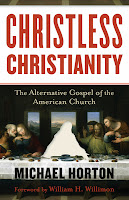John 1
English Standard Version (ESV)
43 The next day Jesus decided to go to Galilee. He found Philip and said to him, “Follow me.” 44 Now Philip was from Bethsaida, the city of Andrew and Peter. 45 Philip found Nathanael and said to him, “We have found him of whom Moses in the Law and also the prophets wrote, Jesus of Nazareth, the son of Joseph.” 46 Nathanael said to him, “Can anything good come out of Nazareth?” Philip said to him, “Come and see.” 47 Jesus saw Nathanael coming toward him and said of him, “Behold, an Israelite indeed, in whom there is no deceit!” 48 Nathanael said to him, “How do you know me?” Jesus answered him, “Before Philip called you, when you were under the fig tree, I saw you.”49 Nathanael answered him, “Rabbi, you are the Son of God! You are the King of Israel!” 50 Jesus answered him, “Because I said to you, ‘I saw you under the fig tree,’ do you believe? You will see greater things than these.” 51 And he said to him, “Truly, truly, I say to you, you will see heaven opened, and the angels of God ascending and descending on the Son of Man.”
I marvel at the encounters that Jesus has with people. Somehow so simplistic, yet layered in complexity and mystery. So Jesus is getting His crew together, and he "decides" to go to Galilee. He finds Philip, and the only thing that is recorded is that Jesus says, "Follow me." How much did Philip know? What was it about Philip that caused Jesus to choose him? We just know that Philip does follow Jesus. Not only that, he finds Nathanael, and shares what he has found with him. But Nathanael is skeptical. When he finds out that Jesus hails from Nazareth (the hood?), he wonders what good can come from there. But he goes to check out Jesus.
When he sees Jesus, and Jesus sees him, a bizarre exchange takes place. Jesus greets his as one in whom there is no deceit. Nathanael accepts this compliment, and asks Jesus how he knows this to be true, how does he know anything about Nathanael. Jesus tells him he saw him before he came, even as he was under the fig tree. That's all it takes, Nathanael is convinced Jesus is the Son of God.
Don't they have a lot of fig trees in Israel? Was Jesus comment really that profound?
Jesus probably chuckled. You think that was impressive? Wait til you see what else is in store...
Thought for the Day: So much is missing from this story. But we really don't need the details. I wonder how many sermons could legitimately come from such a text. This is a puzzle piece to me. So many questions I want answered, so many questions left unanswered. Just an odd little piece in a much bigger picture. Yet it is still important. I don't think God wastes time putting anything in Scripture. I just don't get all of it. And that is true of many things in life. I don't get why they happen, but they do and I don't think God is oblivious to them. If he knows the number of hairs on my head, I doubt anything else escapes him either. So I ask my questions, not always getting an answer. I am okay with that. I have to be.










